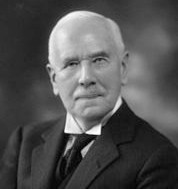The delicate muscle tissue of the heart and blood-vessels is degenerating and being replaced with fibrous tissue. The delicate muscle tissue of the heart and blood-vessels is degenerating and being replaced with fibrous tissue. The efficiency of the whole circulatory system is depreciated and the possibilities of heart failure and apoplexy loom not far distant.
Such a regrettable state of affairs may readily bring disaster to middle state of all know of breakdowns at this period of life, seemingly sudden and inexplicable, in persons we always believed to be robust and healthy. Chronic constipation and bad habits of food and drink have been insidiously deteriorating the vital organs, and the man or woman is stricken just when he or she should be settling down to enjoy the fruits of the years of toil. It will be admitted that certain people by temperament or constitution appear to be prone to bilious attacks.
Nervous, highly strung people may readily succumb to a bilious attack through purely emotional causes. In nervous, unstable children such such attacks are fairly frequent and are associated with acidosis, a condition in which the normal alkalinity of the blood is diminished. In this condition the immediate administration of glucose in some form, together with bicarbonate of soda, will generally relieve attacks.
There is also a form of biliousness which arises in certain people by eating foods for which they have an idiosyncrasy. Eggs, shell-fish and some fruits are well known to produce severe bilious attacks in sensitive persons, and the obvious remedy is to avoid the offending article of diet.
Then, there are the bilious attacks which arise in connection with migraine or sick headache. In this affection, peculiar eye symptoms usually precede the headache, which is intense, usually limited to one side of the head, and culminating in bilious vomiting. The exact cause of migraine is still obscure, but it seems certain that the liver disturbance is not the cause but only a symptoms. Recently, and attempt has been made to treat migraine with bile salts, a method which appears to be homoeopathic in principle, and fairly satisfactory results have been obtained.
Eye-strain appears to be related to liver disturbance in some curious way, and people who suffer from seemingly inexplicable attacks of bilious vomiting should have their eyes tested for astigmatism and other errors of refraction. Some surprising results have been obtained by the correcting of some visual error. It is also to be borne in mind that the symptom of biliousness is nearly always present in sufferers from gall-stones, while malarial subjects appear unduly liable to liver disorders.
Let us now briefly go into the subject of preventing bilious attacks. For those who have any tendency to be liverish, diet is all important. Generally speaking, all fatty or greasy foods should be eliminated. Hot buttered toast or tea-cakes, pork goose and salmon, are naturally taboo. Meat should never be taken more than once a day and red butchers meat is best avoided. An occasional fast from all meaty foods is advisable. White fish, chicken, egg dishes, milk puddings, wholemeal bread with little butter, green and root vegetables carefully prepared, and fresh fruit should form the chief constituents of the dietary.
Pickles, sauces and other condiments should never be taken and alcohol in particular is to be avoided. Water is the best beverage, and it should be drunk abundantly every day. A glass of Hunyadi or Carlsbad water first thing in the morning is very beneficial. Weak tea or coffee in moderation is also permissible. Unquestionably, an occasional small dose of calomel is stimulating to the bowel and liver function, and a dose of magnesium sulphate or Epsom salts every morning for a period will improve elimination.
During a severe bout of liverishness, liquid nourishment only is indicated. Milk and soda, light chicken broth, and fruit juice should be taken, with later the addition of lightly cooked eggs, white fish and weak tea. The management of an acute bilious attack is obviously to a great extent dependent upon the cause, but there are certain general measures which can be adopted in most cases. REst in a dark room is necessary while the sickness or vomiting persists and an alkaline effervescing drink will help to soothe the discomfort.
As soon as possible a brisk purge by calomel, followed in a few hours by a Seidlitz powder should be given, or an enema to wash out the bowel. If there is a headache, it is permissible to take an aspirin or phenacetin tablet, repeated in three hours if necessary. No food other than barley or albumen water should be taken during the acute phase, in fact until the appetite returns, when a light diet should be persisted with for a week or two subsequently. No alcohol of any kind is to be drunk for a considerable time afterwards.
Let me emphasize, in conclusion, that liverishness and bilious attack are essentially preventable, not by drugs or other similar methods of treatment, but by correct habits of diet and bowel functioning. The proper usage of fresh air, sunlight and exercise is equally essential, and this last remark I bring specially to the notice of sedentary workers, for they are peculiarly susceptible to the liver disorders under discussion.

